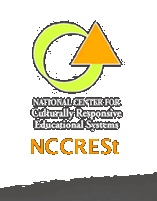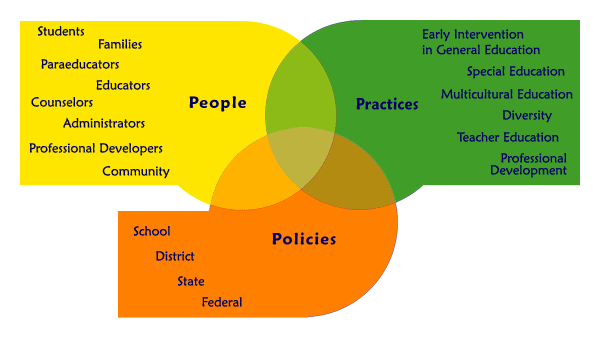
---
---
---
---
---

 |
 |
NCCREStpart of the Education Reform NetworksClick on any of the items in our framework to enter our library. 
The National Center for Culturally Responsive Educational Systems (NCCRESt) provides technical assistance and professional development to close the achievement gap between students from culturally and linguistically diverse backgrounds and their peers, and reduce inappropriate referrals to special education. This library is organized by the NCCRESt conceptual framework for addressing the disproportionate representation of culturally and linguistically diverse students in special education. The cornerstone of our approach to addressing disproportionate representation is through the creation of culturally responsive educational systems. This work cuts across three interrelated domains: policies, practices, and people. Policies include those guidelines enacted at federal, state, district, and school levels that influence funding, resource allocation, accountability, and other key aspects of schooling. We use the notion of practice in two ways, in the instrumental sense of daily practices that all cultural beings engage in to navigate and survive their worlds, and also in a technical sense to describe the procedures and strategies devised for the purpose of maximizing students' learning outcomes. People include all those in the broad educational system: administrators, teacher educators, teachers, community members, families, and the children whose opportunities we wish to improve.
Citation: Klingner, J. K., Artiles, A. J., Kozleski, E., Harry, B., Zion, S., Tate, W., Durán, G. Z., & Riley, D. (2005, September 8). Addressing the disproportionate representation of culturally and linguistically diverse students in special education through culturally responsive educational systems. Education Policy Analysis Archives, 13(38). Retrieved from http://epaa.asu.edu/epaa/v13n38/. As your needs become more specific you may want to start browsing the card catalog to find more narrowly focused sets of resources. We recommend that you take our tour before you begin.
|
|
 Funded by the
Funded by the